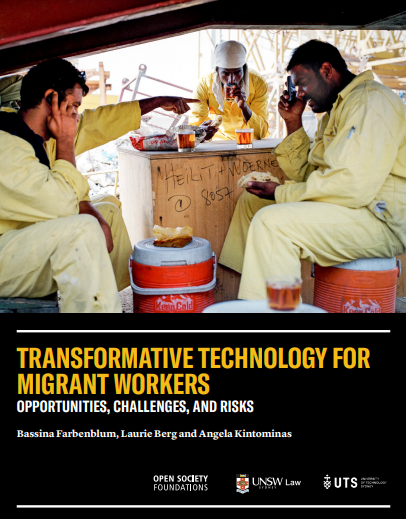Low-wage migrant workers commonly encounter abuses of their labour rights during the migration process. These abuses can include deceptive practices by recruitment agencies, underpayment, poor and unsafe working conditions, and other exploitative practices that may amount to criminal forced labour or human trafficking offenses. Over the past five years, digital technology initiatives have been developed to inform, empower, and connect migrant workers in new ways. These include consumer reporting platforms that pool data on migrants’ experiences with recruitment agencies, within supply chains, and more. Technology offers the promise that the worker’s voice is central to their migration and employment decisions, and allows them to share their experiences in order to reduce exploitation. This report examines five areas in which digital platforms are being developed to protect and empower migrant workers, and considers practical, legal, ethical, and technological implications, and the risks associated with them. The report concludes that digital technology cannot fix structural inequalities, missing institutional capacity, or a lack of political will to address labour exploitation. But when used responsibly and with worker protection and outcomes as a priority, it offers new and amplified opportunities for migrant worker empowerment and justice.

